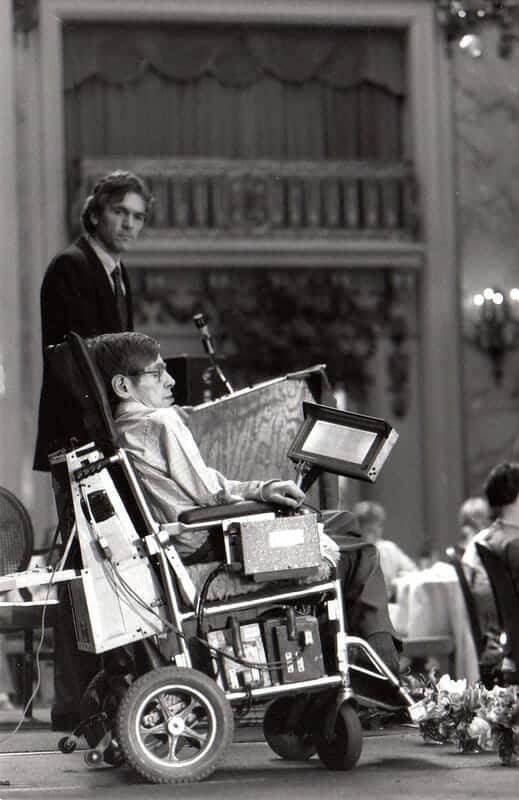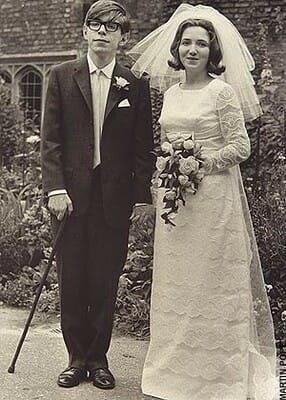In the new documentary ‘Hawking: Can You Hear Me?’ many of Hawking’s friends and family speak publicly about him for the first time since his death in 2018, and it’s as honest and raw as it can be.
The new Sky documentaries production has nothing short in the frankness department, with many of the professor’s family, friends, and colleagues describing the raw and unflinching truth about his life.
Perhaps one of the most recognizable men in the world, we’re all familiar with the brief life story of Stephen Hawking.
A pioneer theoretical physicist, professor of mathematics at Cambridge University (a seat previously Newton once had), and world-famous author of the best-selling ‘A Brief History of Time’.

The documentary doesn’t shy away from revealing what it was like for Hawking’s peers to communicate and have a relationship with a man who was both a modern-day genius and in declining physical health due to motor neurone disease (MND).
Diagnosed at 21 years old, his doctors gave him three years to live, but despite severe disability leaving him paralyzed and unable to talk, he went on to live for decades, marrying his first wife, Jane, and having three children.
Most notably, he became a world-renowned physicist and cosmologist in spite of the hardships with his health.
Documentaries are a vessel to narrate stories of one’s genius from start to finish, but what ‘Hawking: Can You Hear Me?’ does so brilliantly is shed light on the less-discussed aspects of Hawking’s life; the toll it took on him, his work, and all those around him accommodating to a genius mind forever trapped inside a failing body.

The frankest of the voices was one of Jane, his wife, who still married Hawking with the knowledge that he only had a few years left to live.
The marriage lasted 30 years, during which as Jane put “everything had to be sacrificed to the worship of the goddess of physics.”
Their children, Robert, Lucy, and Tim, were as open about how difficult it was to maintain a relationship with their father; whether it was due to his illness or his hyper-focused attitude towards the pursuit of scientific knowledge.
Lucy, who was born seven years after his illness, remarked, “All the time I knew my father, he was 24 hours off dying.”
Hawking’s youngest son, Tim, was six years old when he lost his ability to talk. Tim describes the voice synthesizer as “a golden era of communication for us.”
Jane adds: “He very rarely spoke about his illness, but when he did, he said that the advantage of his illness was that he was able to devote himself 100 percent to his work.
“He didn’t have to change nappies, he didn’t have to make cups of tea, he didn’t have to cook meals, but he could just get on with concentrating on physics.”
The film further explores the dynamics of the relationships with his peers and family, making it clear that everybody around Hawking loved him, but nothing about that love was easy. What the movie does best is giving credit to the genius where it’s due, and to those around him with their unsung stories.
You can watch ‘Hawking: Can You Hear Me?’ on Sky Documentaries and NOW from 20 September.














